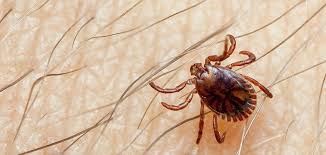A groundbreaking tool developed at the University of Virginia School of Medicine is poised to revolutionize the understanding and management of childhood undernutrition, a critical factor contributing to nearly half of all deaths among children under the age of five globally.
Led by Dr. Carrie A. Cowardin and her team, this innovative research model promises to provide deeper insights into the intricate relationship between undernutrition, the microbiome, and its impact on growth and the immune system.
Traditionally, scientists have studied the microbiome’s role by transferring human microbiome samples into laboratory mice. However, Cowardin and her colleagues recognized the limitations of this approach and devised a more sophisticated method termed “intergenerational colonization.” By introducing microbes to mice at a very young age, before they were weaned, they were able to create a model that more accurately mirrored the effects of undernutrition during early childhood.
“We believe this new model will help us investigate many of the major challenges facing undernourished children, including higher rates of infection and changes in cognitive development,” stated Cowardin, a vital member of UVA’s Department of Pediatrics.
The implications of this breakthrough are vast. Using this model, researchers observed that unweaned mice receiving microbes from undernourished children exhibited stunted growth and immune system responses akin to those observed in human children. In contrast, administering microbes later in life resulted in markedly different outcomes, emphasizing the critical role of early microbiome colonization.
“The infancy stage is pivotal in shaping the trajectory of the immune system, with lifelong implications,” explained Cowardin, underscoring the significance of their findings.
Moreover, this novel model holds promise for understanding the underlying biological mechanisms driving stunted growth and other detrimental effects of undernutrition in developing countries. By unraveling these complexities, researchers aim to develop targeted interventions to mitigate these effects and enhance children’s health outcomes worldwide.
Dr. Cowardin’s expertise in the microbiome has positioned her as a key figure in UVA’s TransUniversity Microbiome Initiative (TUMI), a collaborative effort uniting experts across disciplines to explore the microbiome’s role in human health. Through initiatives like TUMI, UVA is at the forefront of microbiome research, striving to translate scientific discoveries into tangible solutions for global health challenges.
“We hope this work also allows us to answer fundamental questions about how the microbiome interacts with our own cells to shape the course of development,” remarked Cowardin, highlighting the broader implications of their research beyond childhood undernutrition.
With a focus on advancing child health research, UVA Health Children’s Child Health Research Center, home to Dr. Cowardin’s lab, remains dedicated to pioneering discoveries that improve children’s lives worldwide.
In the ongoing battle against childhood undernutrition, the innovative approach spearheaded by Dr. Cowardin and her team offers a ray of hope, promising to pave the way for transformative interventions and ultimately, a brighter future for vulnerable children globally.










